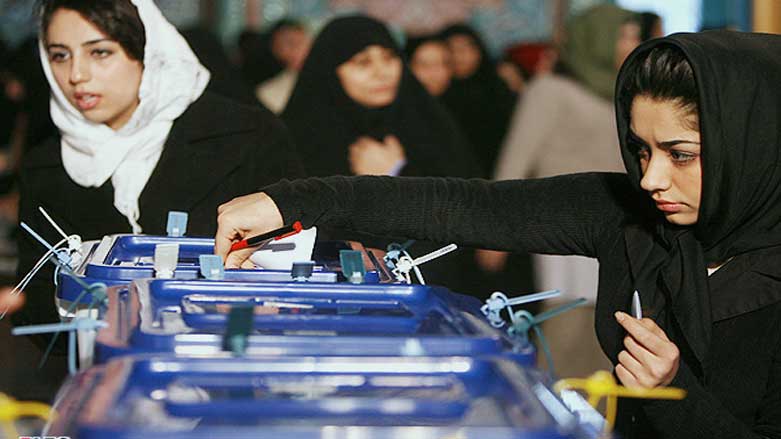Iranian election marked reformists' victory

Sanandaj, Iranian Kurdistan (K24) - The results of the Friday election of the Assembly of Experts and the Parliament in Iran were announced on Monday, marking a victory for candidates that support reform and the nuclear deal.
Fayegh Rostami and the cleric Hujjat al-Islam Seyed Muhammad Shahroodi were declared as the official winners in the Kurdistan Province although local news agencies reported a discrepancy in the results.
According to Mukrian News Agency, Anwar Adami was first declared to have won more votes than the clergy, Shahroodi, but the official Iranian news agencies later changed their reports and claimed the mullah had won the second most votes. Hujjat al-Islam is an honorific title meaning "authority on Islam" or "proof of Islam."
Also, three Kurdish candidates, one man and two women, won seats in the parliament in Tehran: Farideh Avlad Qubad, Bahroz Nimati and Parvaneh Mafi.
Overall, the top 30 parliamentary candidates were the ones endorsed by the "reformists."
Candidates in Iran do not belong to political parties, but they are classified as hard-liners, moderates and reformists.
The candidates are not vastly different in ideas and agendas since all of them have been approved by the Guardian Council, who disqualified a large number of Kurdish candidates.
The Supreme Leader, Ayatollah Khamenei, has the final say in the important decisions in the country and the hardliners hold the most important positions in Iran.
Khamenei issued a statement two days after the elections, praising the high level of public participation and thanking people for disappointing the enemy by heeding his public call to vote.
He then urged the candidates to continue “resistance against foreign interference” and consider “a revolutionary response to all treacherous plans against the country as their top priority.”
Former Iranian president, Mohammad Khatami, who has been on media ban since 2009 for supporting the post-presidential-election protests, issued a statement on Monday.
Khatami said that people expressed their support for reform in the 2016 election and the results “carried the message that the people want security, progress and a stable system.”
In the Kurdish region, an estimated 60 percent of the population refused to participate in the elections, saying the results would not improve the life of Kurds either way.
Reporting by Ava Homa
Editing by Karzan Sulaivany
